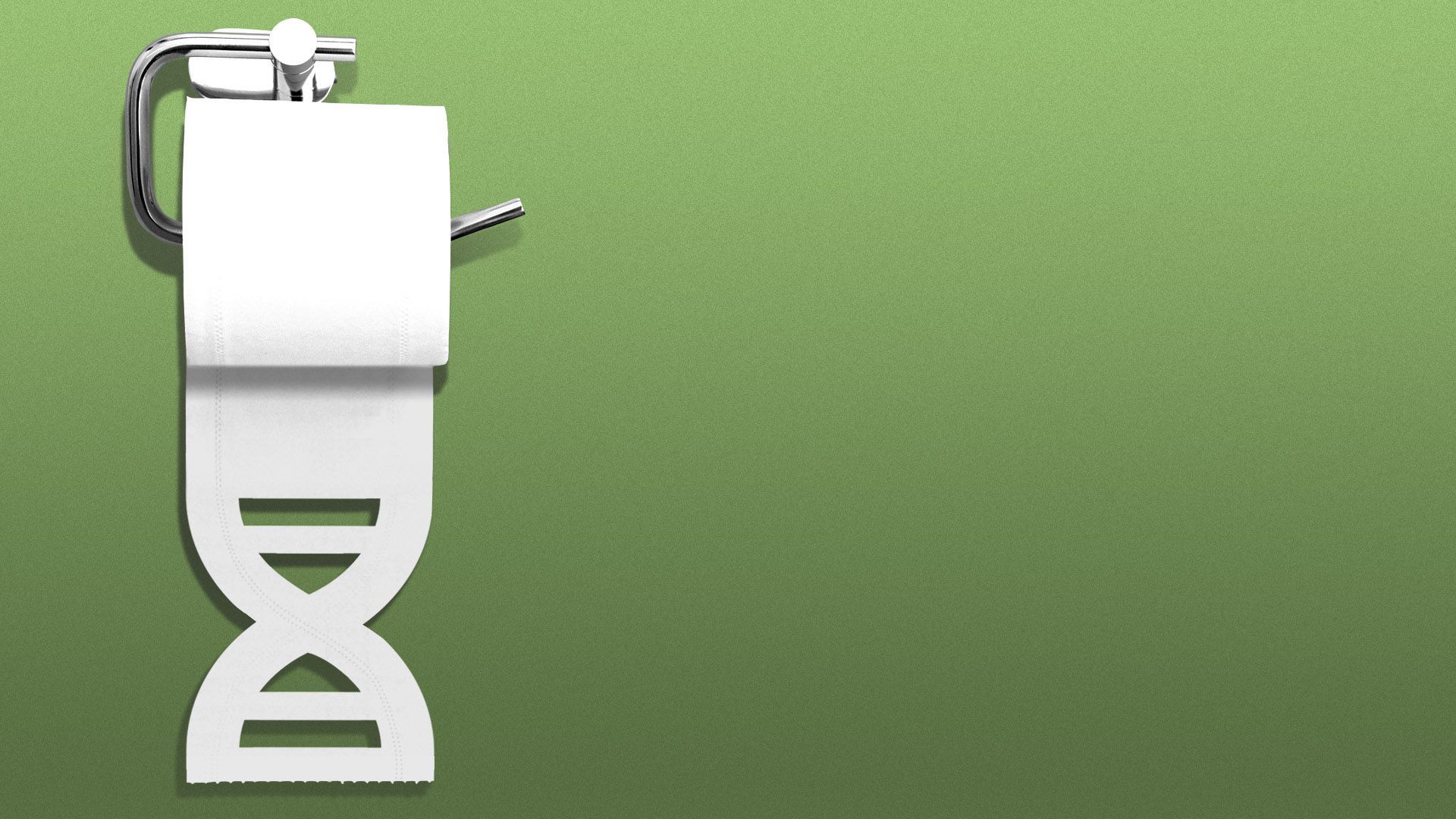Tracking coronavirus variants through sewage
Add Axios as your preferred source to
see more of our stories on Google.

Illustration: Sarah Grillo/Axios
Wastewater is proving a valuable resource to genetically track the spread of the coronavirus — and the emergence of new variants.
Why it matters: As long as widescale testing and genetic surveillance remains constrained, we'll always be a step behind COVID-19. But sequencing sewage presents a cheap and simple way of keeping tabs on viral spread within a community.
What's happening: While Missouri has reported only one confirmed coronavirus variant case — the B.1.1.7 U.K. variant — genetic sequencing of community wastewater found evidence of it this week in more than 13 communities around the state.
How it works: Wastewater surveillance takes advantage of two things: increasingly inexpensive genetic sequencing tools and the undeniable fact that almost everything that goes into our body eventually ends up in sewage.
- "In the same way that you analyze information about the health of an individual by looking at their urine and stool, you can look at wastewater and very rapidly understand things about an entire community," says Newsha Ghaeli, president of Biobot Analytics, a startup that specializes in wastewater epidemiology.
Background: Ghaeli launched Biobot in 2017 with Mariana Matus, a computational and systems biologist at MIT. They originally aimed to use wastewater epidemiology to identify areas where opioid abuse was prevalent.
- Once COVID-19 hit, they pivoted to monitoring wastewater samples for the virus, which gave clear indications of outbreaks before hospitals were overwhelmed.
- Biobot has worked with more than 400 communities around the U.S. and Canada to track the spread of the virus, which helps local leaders better time outbreak controls.
What to watch: The big board at the wonderfully named COVIDPoops19, a dashboard maintained by researchers at the University of California-Merced that tracks wastewater surveillance efforts around the world.
The bottom line: For epidemiologists, at least, sewage is anything but garbage.
Go deeper: Why COVID demands genetic surveillance
